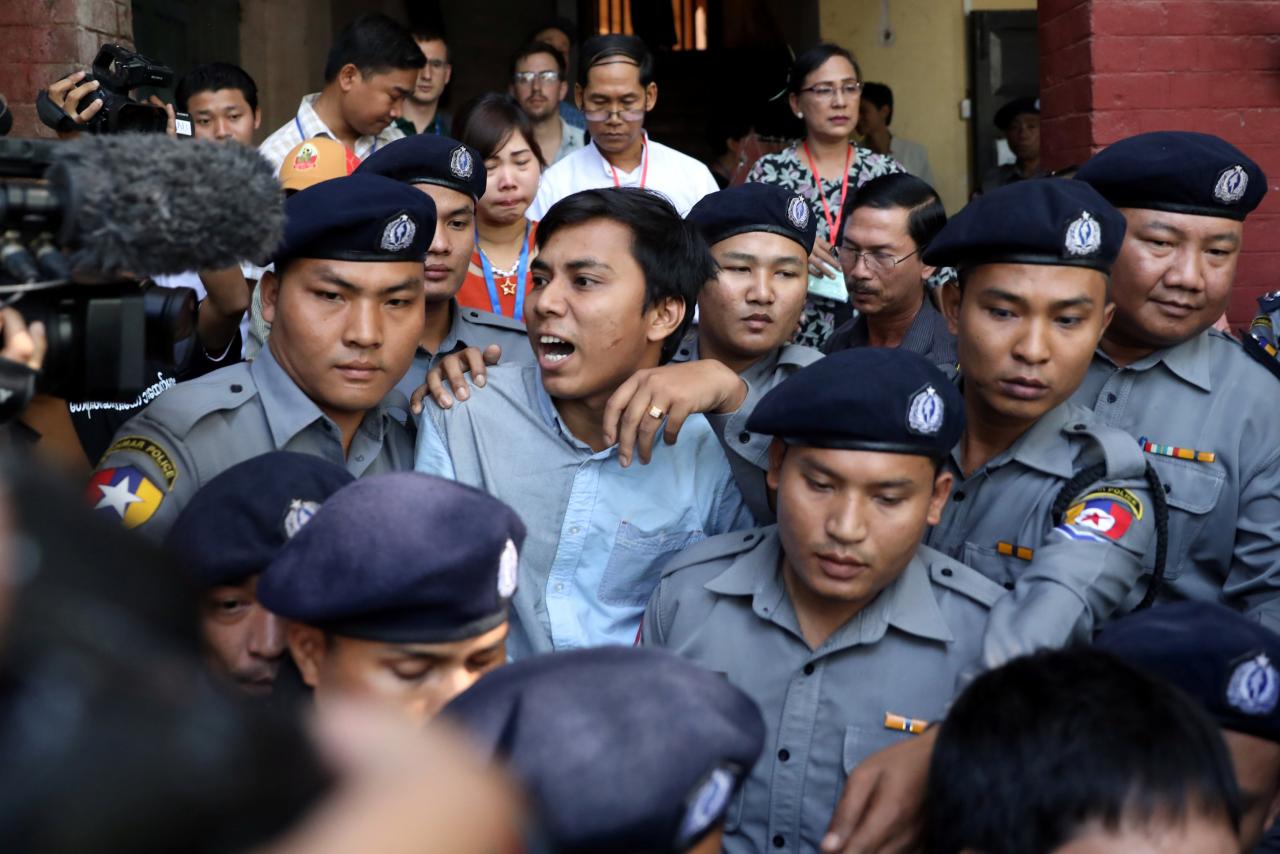Myanmar’s military police will pursue legal action against international news agency Reuters for a report on Rohingya civilian deaths. The report, published in late January, quoted sources that blamed Myanmar army (Tatmadaw) artillery shells for the deaths of two Rohingya women in the embattled Rakhine State. Among the accusers was parliamentarian Maung Kyaw Zan, who represents Rakhine’s Buthidaung Township. The military has denied their claims, blaming the deaths on the Arakan Army separatist group. It will sue both Reuters and the lawmaker under article 66(d) of the Telecommunications Law, which bans online defamation.
“Reuters stands by the reporting that is of concern to the military and is the subject of an ongoing discussion with Myanmar’s Press Council,” a Reuters spokesperson told The Guardian. “We do not believe there is any basis for a criminal action against Reuters or our journalists under Myanmar law. We have not seen any criminal complaint against Reuters, and so cannot comment further at this time.”
This will be the second case against Reuters since two of its reporters, Wa Lone and Kyaw Soe Oo, were arrested in 2017 and charged under the State Secrets Act for possessing leaked military documents. The incident became an international political black eye for Myanmar, eventually leading to a Pulitzer Prize for the Reuters news team.
The new case is also likely to add to the discussion of press freedom, this time around the controversial online defamation law. For many, “Article 66(d)” has come to symbolize state censorship in Myanmar. It allows for criminal charges against people for what they say or write online, and is seen by many as a weapon used by powerful figures against their critics. In another recent example, the law was used to jail members of Yangon’s Peacock Generation comedy troupe for circulating video of a performance that mocked the military.


